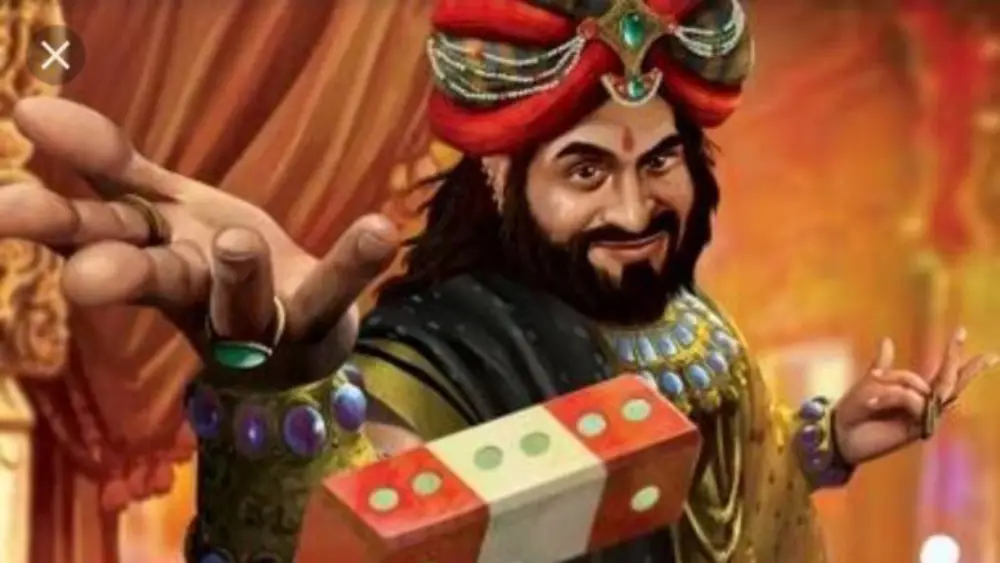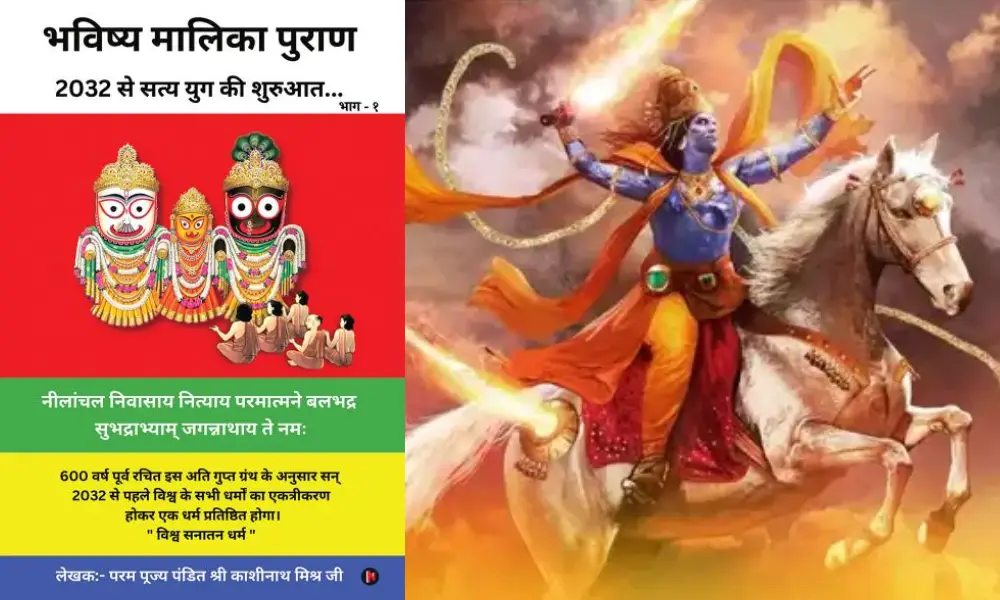In the Mahabharata, Shakuni is a prominent character known for his role in the Kurukshetra war. He is the younger brother of Gandhari, the wife of Dhritarashtra, who is the blind king of Hastinapura. Shakuni hails from the kingdom of Gandhara.
Shakuni is often portrayed as a cunning and manipulative character. He is best known for his influence over his nephew Duryodhana, the eldest of the Kaurava brothers. Shakuni's primary objective throughout the epic is to seek revenge against the Kuru dynasty due to perceived wrongs done to his sister, Gandhari.
Shakuni is infamous for his involvement in the game of dice, which ultimately leads to the exile of the Pandavas and Draupadi. He manipulates the dice game in favor of Duryodhana, resulting in the loss of the Pandavas' kingdom, wealth, and ultimately their dignity. Shakuni's actions play a significant role in escalating the tensions between the Kauravas and the Pandavas, eventually leading to the great war of Kurukshetra.
Despite his negative portrayal, Shakuni is also seen as a tragic figure, driven by his desire for revenge and loyalty towards his sister. His character exemplifies the complex dynamics of the Mahabharata, where individuals are often driven by personal motives and conflicting loyalties, leading to disastrous consequences.
How Did Shakuni Cheat in The Game Of Dice?
Delve into the captivating and lesser-known subplot of Shakuni in the epic Mahabharata, revealing an intricate web of fate and revenge. Shakuni's journey begins with an extraordinary twist in his sister Gandhari's life, shaping his path toward vengeance.
Gandhari's horoscope predicted widowhood as her destiny. To circumvent this, her family devised a peculiar solution. They married her to a goat, symbolically fulfilling the prophecy, and believed that she could then marry a human without any ill effects, as technically she would be entering into her second marriage.
When the proposal from the blind king Dhritrashtra arrived for Gandhari, Shakuni expressed his displeasure. He resented Gandhari marrying Dhritrashtra, especially since the kingdom had been passed over to the more capable Pandu. Despite his objections, Gandhari proceeded with the marriage.
In a dramatic turn of events, the secret of Gandhari's first marriage to the goat was eventually revealed. This revelation incensed both Dhritrashtra and Pandu, as they were unaware that Gandhari was technically a widow. Seeking retribution, they imprisoned Gandhari's male family members, including her father and 100 brothers. Unable to resort to outright killing due to moral constraints, Dhritrashtra devised a cruel plan - to slowly starve them by providing only a single fistful of rice for the entire clan each day.
Faced with the agonizing prospect of starvation, Gandhari's family devised their own plan. They decided to give the entire portion of rice to the youngest brother, Shakuni, ensuring his survival. Their intention was for Shakuni to exact revenge on Dhritrashtra in the future. Witnessing the deaths of his entire male family, Shakuni's father, in his final moments, instructed him to fashion a pair of dice from his bones. These dice would possess an extraordinary power, always obeying Shakuni's commands. This dice would later become a pivotal instrument in Shakuni's vengeful scheme.
Following the demise of his relatives, Shakuni forged the dice as instructed, infusing them with the ashes of his father's bones. Escaping from prison through his silver tongue, he ingratiated himself with Duryodhana and set in motion his malevolent plan for revenge. His ultimate goal was to bring about the destruction of Dhritrashtra's 100 sons, avenging the death of his 100 kinsmen. The rest, as they say, is history, etching Shakuni's name into the annals of the epic.
How Shakuni Manipulated The Game
Shakuni's method of cheating in the game of dice in the Mahabharata involved the use of his specially crafted dice, which were believed to possess supernatural properties. Here's how Shakuni manipulated the game:
Enchanted Dice
His dice were made from the bones of his father, and it was said that they were imbued with divine blessings or magical powers. These dice were designed to favor Shakuni, allowing him to influence the outcome of the throws.
Sleight of Hand
He was skilled in the art of manipulation and sleight of hand. He would subtly swap the dice during the game, ensuring that the favorable ones were in his possession while presenting ordinary dice to his opponents. This deceitful tactic gave him an unfair advantage.
Controlled Throws
He had mastered the technique of controlling the throws of the dice. By using his expertise, he could make the dice land on desired numbers, thereby guaranteeing his victory in the game. His precise control over the dice throws created an illusion of chance while secretly steering the outcome in his favor.
Psychological Manipulation
He was not only a master of the dice but also a skilled manipulator of emotions and psychology. He played on the weaknesses and vulnerabilities of his opponents, exploiting their desires, insecurities, and impulsiveness. By manipulating their state of mind, Shakuni influenced their decisions and provoked them into making unwise bets or choices during the game.
Shakuni's cheating techniques combined his mastery of dice manipulation, sleight of hand, and psychological manipulation, enabling him to secure wins and deceive his opponents. However, it is essential to remember that the Mahabharata is a mythological epic, and Shakuni's ability to control the dice is depicted within the context of the story's symbolism and narrative.





